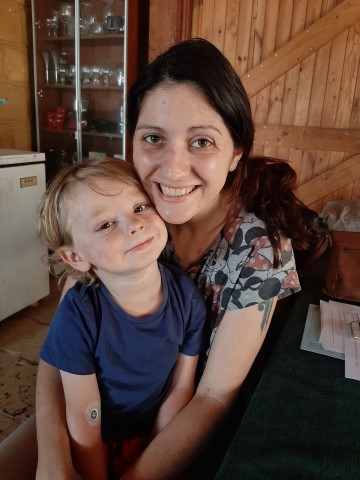Search

News & Events
T2D now being diagnosed in children as young as sixChildren as young as six years old are being diagnosed with type 2 diabetes, according to Perth endocrinologists who are calling for early screening of at-risk groups.

News & Events
ENDIA milestoneAustralia’s biggest study into the causes of type 1 diabetes recently recruited its 1500th and final participant right here in WA.

News & Events
World Diabetes DayIt may only have been a matter of months since Abby Carlon was diagnosed with type 1 diabetes but already the 10-year-old knows more than most about the condition. That’s because she’s always kept an eye out for her little sister Mia who was diagnosed with type 1 diabetes when she was three.

News & Events
Welcome to the team Amelia!We’re super excited to welcome Dr Amelia Harray to our research team. Amelia looks forward to strengthening the focus on food research to help children with type 1 diabetes and their families.

News & Events
Spots available for diabetes self-efficacy groupPerth Children's Hospital's upcoming diabetes self-efficacy group has availability for children with type 1 diabetes aged five to 10 years.

News & Events
The reality of having a child with type 1 diabetesAt every meal, Candice Carlon counts the carbs in her daughter Mia’s food. When Mia started pre-kindy, she stayed with her every day for six months.

News & Events
Testing how much protein is needed to prevent overnight hypos which can happen after exerciseWe're testing how much protein is needed to prevent overnight hypos which can happen after exercise

News & Events
Wellbeing study needs you!Young people are needed for a new Children's Diabetes Centre research study that aims to improve the mental health of teens with type 1 diabetes.

News & Events
Technology proves a gamechangerHeidi Bucktin likes to think of her family’s life as pre and post continuous glucose monitoring – that’s how markedly different the two periods are in their journey of living with a child with type 1 diabetes.

News & Events
Being active is key to heart healthDid you know that regular exercise can literally add years to the lives of children living with Type 1 Diabetes?
